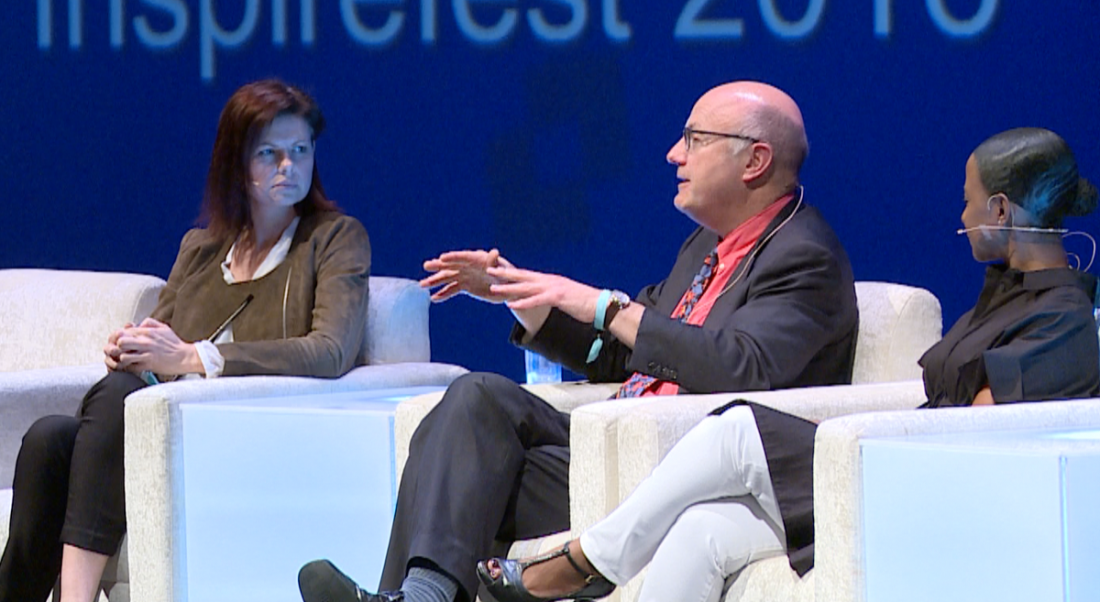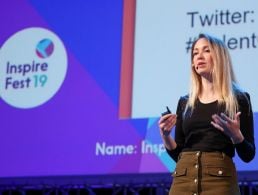A panel of experts recently sat down to discuss higher education and its role in the STEM industry: funnelling a diverse range of graduates through the system requires targets, plans and action.
Getting people through the education system is difficult in its own regard, but the education system getting the right people through is even harder.
In STEM industries, it’s generally accepted that diversity is lacking, with a dearth of female entrants into the likes of IT and engineering fields helping an already unsustainable labour gap continue to grow.
STEM jobs: Finding a solution
At Inspirefest 2016, Ann O’Dea, founder of the event and Silicon Republic CEO, was joined by Prof Christine Loscher, research director of DCU, Prof Mark Ferguson, director general of SFI, and Alex Bernadotte, founder of Beyond 12, to discuss ways to address the problem.
The latter’s organisation has a key focus on the “college completion challenge” in the US, providing insights and offering advice to students from non-traditional backgrounds to help get them through the system and into employment.
“The interesting thing that happens when we think about the intersection of race and gender is you do see an uptick of females taking advantage of our programmes,” said Bernadotte, noting ethnicity as another area of concern.
“There are lots of incentives in higher education for ensuring that we have equal representation of women. We’re now thinking about similar incentives to address other groups.”
Bernadotte spoke of resistance “at all levels” when she started up Beyond 12, saying it’s natural for pushback when you try to fix a systemic problem.
STEM jobs: Ignorance, not resistance
“I think it’s ignorance rather than resistance,” said Ferguson on the same subject. The SFI director general found that the most common excuse when the opportunity for change presents itself is people washing their hands of a problem.
“There’s also a terrible lack of data,” he said, suggesting an example of school visits from professionals in the STEM industries, and how they need to be coordinated and measured.
“Now we want a target that every single school gets a visit, so we can say to someone, ‘instead of going next door and being the fifth person to speak to students, if you go over to a different school you could be the first one ever to talk to them’.”
The number one criteria for children choosing a career is not money, said Ferguson, but rather, whether or not they will fit in. Number two is the parents, and number three is the parents wondering if their children will fit in.
In a survey Ferguson worked on, 97pc of those asked knew that a degree in science would lead to a job and good pay, but that is not what they were interested in.
“So then you think about role models, stereotypes or underrepresentation. It’s not surprising if your mental mindset is ‘will my child fit in here?’, it’s really important to address that.”
STEM jobs: Access all areas
The Access programme in Ireland has been created to address one area of diversity, with children from families with lower economic capacity entered into the college system and aided throughout their time there.
DCU is one of the pioneers of this programme and it’s an area Loscher was keen to promote. “They are really important,” she said, giving the example that Access graduates have the highest completion rates of any other group in Irish colleges.
“They’re very well supported, they have mentors, tutors, and a dedicated office. They are often the first person [in their family] to have gone to college.”
As reported last month by Hays, Ireland shares top spot with Spain, Portugal and the US when it comes to the talent mismatch in the labour market. Hays noted wage pressures making it extremely hard for companies to source talent, though broadening out the pool of graduates coming out of college each year would go some way to fixing that.
The solution seems to be down to hard work, with well thought out planning a pre-requisite. If industry wants people who never expected to go to college to earn degrees and enter the labour pool, representatives making the first move by going to students at a young age is probably the best way.




